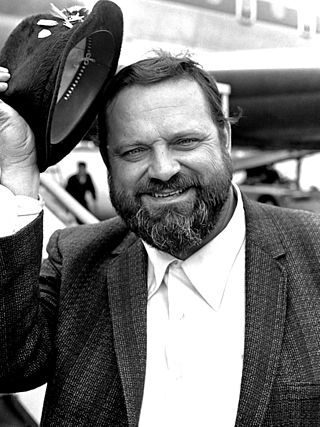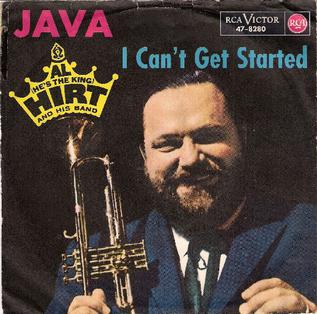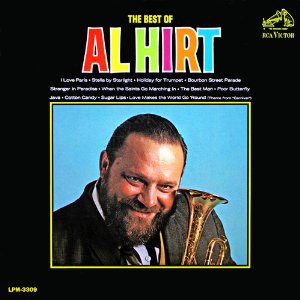Sugar Lips may refer to:
- Sugar Lips (song), a 1964 song by Al Hirt
- Sugar Lips (album), a 1964 album by Al Hirt
Sugar Lips may refer to:

This is a list of notable events in music that took place in the year 1964.

Alois Maxwell "Al" Hirt was an American trumpeter and bandleader. He is best remembered for his million-selling recordings of "Java" and the accompanying album Honey in the Horn (1963), and for the theme music to The Green Hornet. His nicknames included "Jumbo" and "The Round Mound of Sound". Colin Escott, an author of musician biographies, wrote that RCA Victor, for which Hirt had recorded most of his best-selling recordings and for which he had spent most of his professional recording career, had dubbed him with another moniker: "The King." Hirt was inducted into The Louisiana Music Hall of Fame in November 2009. He received eight Grammy nominations during his lifetime, including winning the Grammy award in 1964 for his version of "Java".
"The Song from Moulin Rouge", sub-titled "Where Is Your Heart", is a popular song that first appeared in the 1952 film Moulin Rouge. It became a No. 1 hit in the UK Singles Chart when recorded by Mantovani. The music for the film was written by Georges Auric; the original French lyrics were by Jacques Larue, with the English words by William Engvick. The Auric-Engvick song was published in 1953.
"Memories of You" is a popular song about nostalgia with lyrics written by Andy Razaf and music composed by Eubie Blake and published in 1930.
"Three Little Words" is a popular song with music by Harry Ruby and lyrics by Bert Kalmar, published in 1930.

"Al di là" ("Beyond") is a song written by Italian composer Carlo Donida and lyricist Mogol, and recorded by Betty Curtis. The English lyrics were written by Ervin Drake. The song was the Italian entry in the Eurovision Song Contest 1961, performed in Italian by Curtis at the Palais des Festivals in Cannes, France, on 18 March 1961, after Curtis had won the Sanremo Music Festival 1961 on 2 February.
"I Love Paris" is a popular song written by Cole Porter and published in 1953. The song was introduced by Lilo in the role of La Mome in the musical Can-Can. A line in the song's lyrics inspired the title of the 1964 movie Paris When It Sizzles.
"East of the Sun " is a popular song written by Brooks Bowman, an undergraduate member of Princeton University's Class of 1936, for the 1934 production of the Princeton Triangle Club's production of Stags at Bay. It was published in 1934 by Santly Bros. and soon became a hallmark of the Princeton Tigertones, Princeton University's signature all-male a cappella group. The standard is also sung by the Princeton Nassoons.
"Laura" is a 1945 popular song. The music, composed by David Raksin for the 1944 movie Laura, which starred Gene Tierney and Dana Andrews, is heard frequently in the movie. The film's director, Otto Preminger, had originally wanted to use Duke Ellington's "Sophisticated Lady" as the theme, but Raksin was not convinced that it was suitable. Angered, Preminger gave Raksin one weekend to compose an alternative melody. Raksin later said, and maintained for the rest of his days, that when, over that weekend, his wife sent him a "Dear John" letter, the haunting theme seemed to write itself.

"Up Above My Head" is a gospel song of traditional origin, first recorded in 1941 by The Southern Sons, a vocal group formed by William Langford of the Golden Gate Quartet. In the version that is now the best-known, it was recorded in 1947 by Sister Rosetta Tharpe and Marie Knight as a duo.
"Baby Won't You Please Come Home" is a blues song written by Charles Warfield and Clarence Williams in 1919. The song's authorship is disputed; Warfield claims that he was the sole composer of the song.
"Last Date" is a 1960 instrumental written and performed by Floyd Cramer. It exemplifies the "slip note" style of piano playing that Cramer made popular. It peaked at number 11 on the country chart and at number two on the Hot 100 behind "Are You Lonesome Tonight?" by Elvis Presley. Cramer's recording inspired a number of successful cover versions, including a vocal adaptation by Conway Twitty.

"Java" is an instrumental adaptation from a 1958 LP of piano compositions, The Wild Sounds of New Orleans, by Tousan, also known as New Orleans producer/songwriter Allen Toussaint. As was the case of the rest of Toussaint's LP, "Java" was composed in studio, primarily by Toussaint.

This Is Love is an album by American pop singer Johnny Mathis, released by Mercury Records on September 18, 1964. The album includes three covers of Nat King Cole recordings as well as two more songs from "Fly Me to the Moon" composer Bart Howard.
Cotton candy is a form of spun sugar.
"Sugar Lips" is a song written by Billy Sherrill and Buddy Killen and recorded by Al Hirt for his 1964 album, Sugar Lips. The song reached No. 30 on the Billboard Hot 100 and No. 3 on the Easy Listening chart in 1964.

Beauty and the Beard is an album by Al Hirt and Ann-Margret released by RCA Victor in 1964. The album was arranged by Marty Paich and produced by Steve Sholes.

Sugar Lips is an album by Al Hirt released in 1964 by RCA Victor.

The Best of Al Hirt is a compilation album by Al Hirt released by RCA Victor in 1965. The album peaked at No. 13 on the Billboard Top LPs chart.

"Night Life" is a song written by country music singer-songwriter Willie Nelson. Nelson was inspired to write the song during one of his trips from his home in Pasadena, Texas, to his work, singing at the Esquire Ballroom in Houston.